MEET THE ARTISTS: Michail Rybakov
The Body and the City
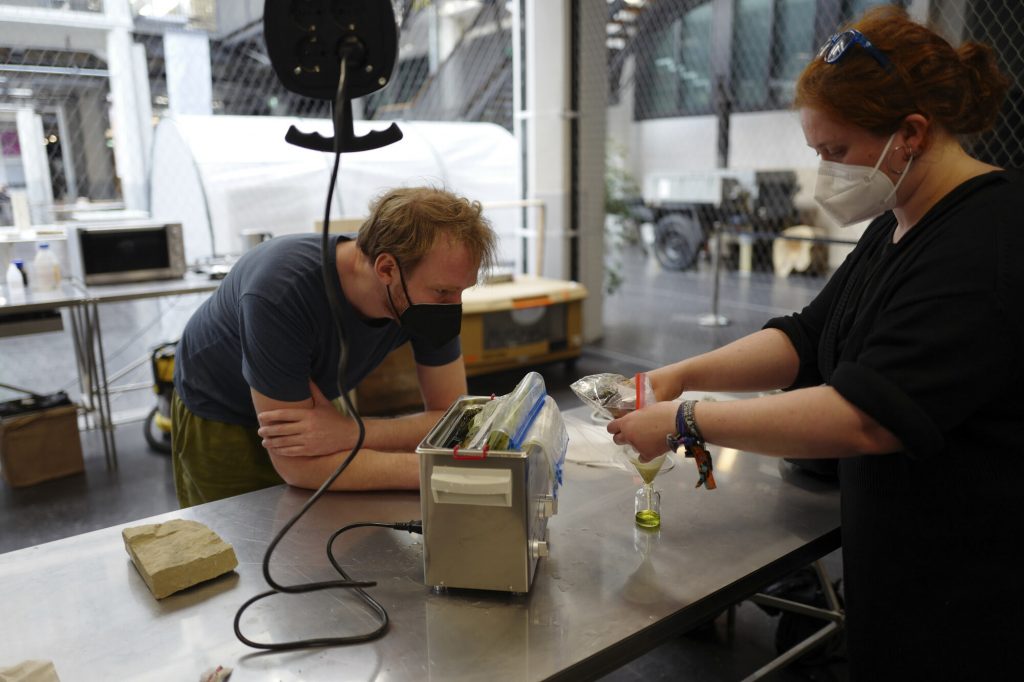
The focus of the project is the exploration of personal space in cities. How much personal space is available to the inhabitants of the city? Where can people go and where do they go? What is personal space and how do people negotiate personal space in crowded places where there is not enough space?
The STARTS AIR project is about making the invisible visible – in cities – and the concept of personal space is something that is invisible but very much felt. If someone gets a little too close to you, you immediately feel a very visceral need for space. So how do we make it visible?
We start with the related concept of the kinesphere. A kinesphere is the space around your body that shows how far you can reach, how far you can move in all directions from that particular point. A kinesphere is not 100% overlapping with personal space, but it is similar – something is different about your relationship to the space that you can directly touch.
From the concept of kinespheres, we go further – what happens when one kinesphere is violated, infringed upon by another kinesphere. We’ve created a Kinesphere Infringement Index (ki/s) that shows how many times your kinesphere is infringed by another person in a second. This index can be used to describe an otherwise unnoticed quality of a space. For someone with a traumatic experience or an anxiety disorder, even the most benign violation of personal space can trigger an internal defense mechanism, and even if the full fight/flight/freeze response is not given, the experience of a thousand paper cuts to your personal space can be very stressful. So the experience of going into town for ice cream can be quite an adventure, depending on the route the person takes.
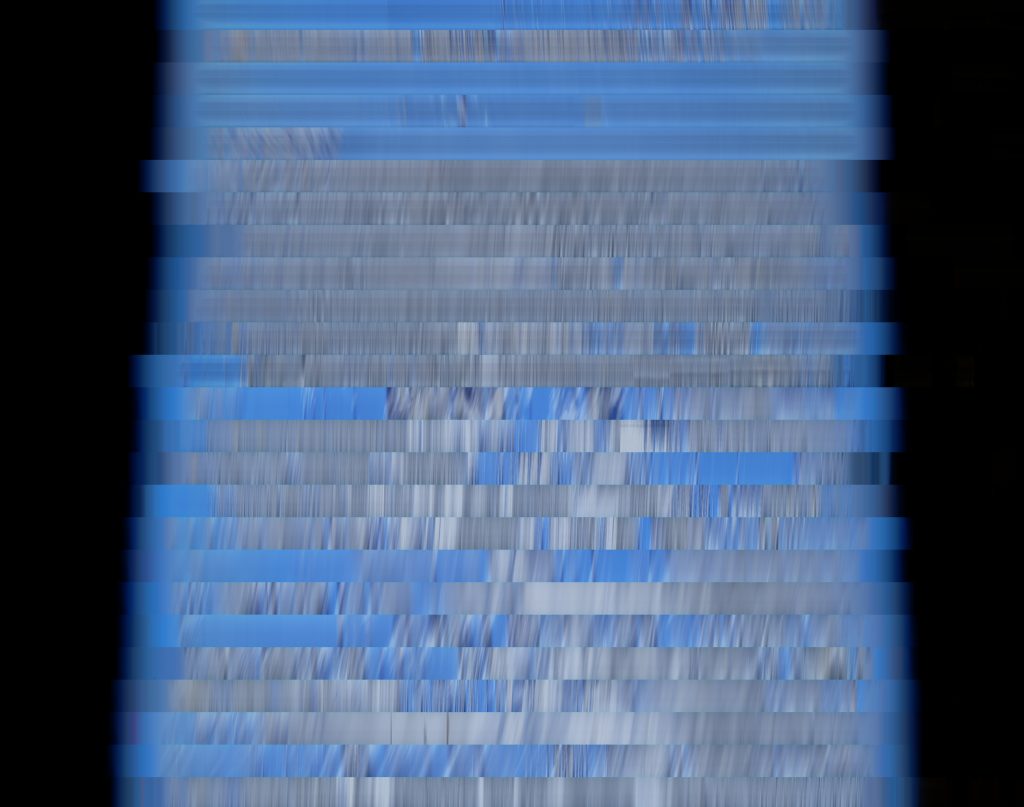
The scientific research with Sony CSL – Rome will allow us to estimate and map the ki/s index in a city. The map is based on the open-source OpenStreetMap foundation and uses a large historical GPS position database to generate the index. With this visualization tool, you can look at the map and decide for yourself which route to take: do you want to be surrounded by more or fewer people?
In parallel, and as a background to the project, a series of interviews will be conducted. After all, the phenomenon of personal space falls within the purview of (and is of interest to) practitioners of many different disciplines. Interviews with architects, psychologists, art theorists, performers and urban planners will provide insight into the different views on the phenomenon of personal space and explore how the different disciplines can use the ki/s index in practice.
The Body and the City: reflections and toughts on project by Michail Rybakov
“The project produced a lot of different approaches at different scales, a lot of code, experimentation and a lot of insight. What is still in development is the overarching narrative that would guide the viewer from the body scale observation of personal space all the way up to the city scale mapping. A website was in the works that would present the findings in an accessible and playful way, but as the last months were focused mostly on deliverables, knowledge transfer, and festival preparation, the website remains unfinished.”
“My current timeline for the website publication is late December, right now https://squeezed.city/ displays a newsletter subscription box, and has gathered a few subscribers already.”
“Next to an interesting narrative the website will present interviews with practitioners of different fields, that will provide a more in-depth view of how personal space violations are seen and dealt with in different disciplines. Two of the interviews have been conducted and are now being edited, with more interviews to follow.”


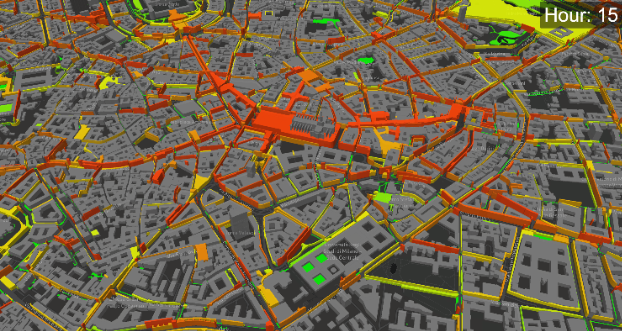
KNOWLEDGE TRANSFER
Michail Rybakov’s knowledge transfer event has been part of the RCR Open Program 2024, a lecture series that offers an interdisciplinary selection of high-level speakers and connects the arts and sciences as generators of culture and ideas.
The program commenced with “Forest Matter,” a collection that powerfully highlights the beauty of trees through short video dances and performances. Filippo Nassetti, another key participant in the S+T+ARTS Air project, presented “Breathing Architecture,” a groundbreaking investigation into the respiratory system that employs collaborative models and simulations.
In this edition, the lecture and video series highlighted the theme of sharing, focusing on generosity, solidarity, empathy, and respect. Introduced by Carme Pigem, founder of RCR Arquitectes and advisor for the S+T+ARTS Air project, a dynamic dialogue unfolded between Michail Rybakov and Hygor Melo, a distinguished researcher from Sony Computer Science Laboratories in Rome. Together, they examined the profound impact of urban environments on personal experiences while actively engaging the audience in discussions about making personal space visible through AI and data.
Event 1 Details
- Event Name: RCR Open Program 2024
- Date: July 10, 2024
- Location: Pati de l’Hospici, Olot, Girona, Spain
- Languages: English and Catalan. Simultaneous translation into Catalan, Spanish and English.
Program
The series of five lectures has presented the photographers María Bleda and José María Rosa, Spanish National Photography Award 2008; the Balearic architect Carles Oliver Barceló, who directed the “Life Reusing Posidonia” climate change adaptation project in Formentera, which received the LIFE 2021 award for the best environmental project by the European Commission; Cristina Gamboa from the cooperative of architects Lacol in Barcelona who generate community infrastructures; multimedia artist-in-residence Michail Rybakov with Hygor Melo from Sony Computer Science Laboratories in Rome (Sony CSL) with a conference in dialogue under the umbrella of the European project S+T+ARTS Air: Artistic Innovation for European Resilience; and Anne Lacaton and Jean-Philippe Vassal of the French architectural firm Lacaton & Vassal and the 2021 Pritzker Prize.
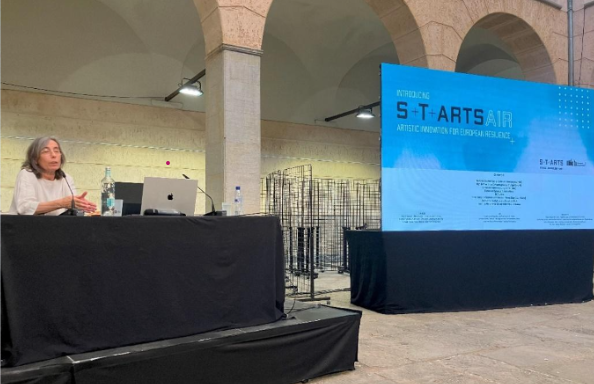
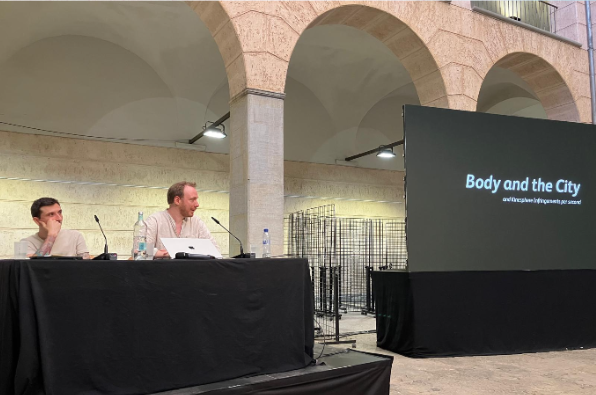
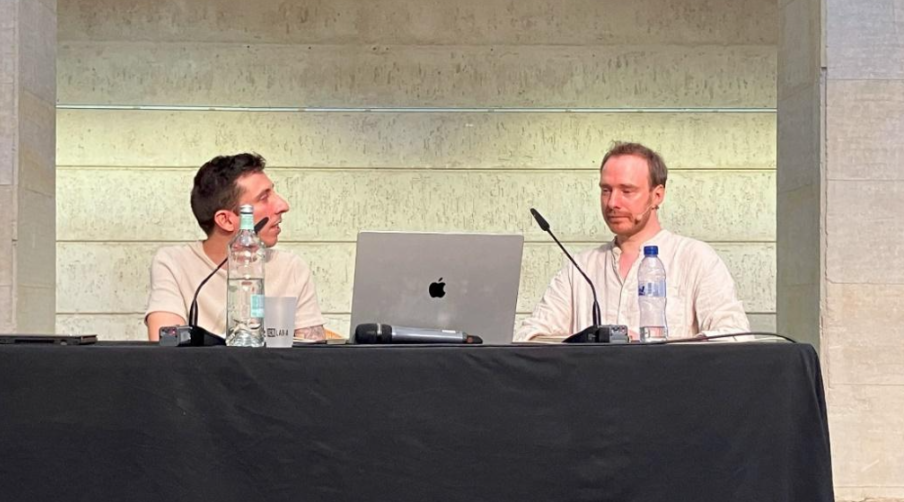
Michail Ribakov’s knowledge transfer events took place in the framework of the widespread event called “Rome Future Week”. The Rome Future Week is a huge event in Rome that develops in several spots of the city and thanks to the partnership between this organizations and Sony CSL – Rome, Michail Rybakov had the opportunity to spread the information about his project towards two types of public: the first one composed by digital expert, art representatives, education institution and other potential stakeholders and the second one composed by all these figures plus general public.
Event 2 Details
- Event Name: Rome Future Week, Educare al Futuro Digitale
- Date: July 4, 2024
- Location: Rome, Forum Studios
Event 3 Details
- Event Name: Intersezioni: Tecnologia, Arte e Cultura
- Date: September 17, 2024
- Location: Rome, Casa delle Tecnologie Emergenti
Event 4 Details
- Event Name: The artists and scientists meet the people
- Date: September 17-22, 2024
- Location: Rome, Casa delle Tecnologie Emergenti
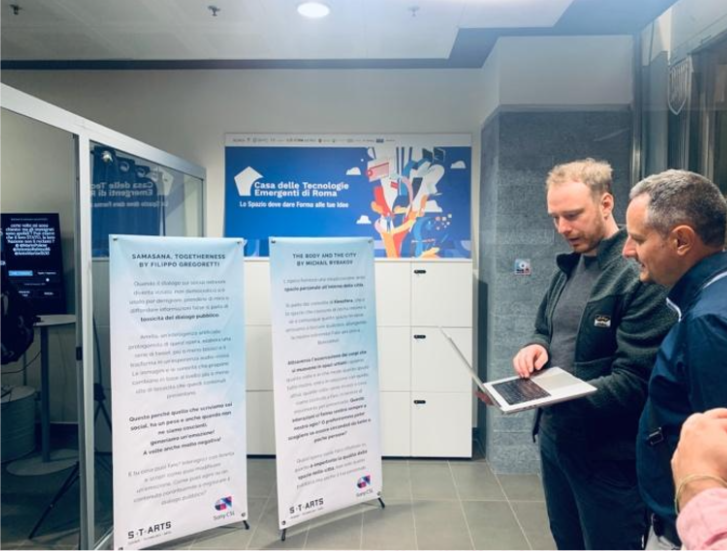
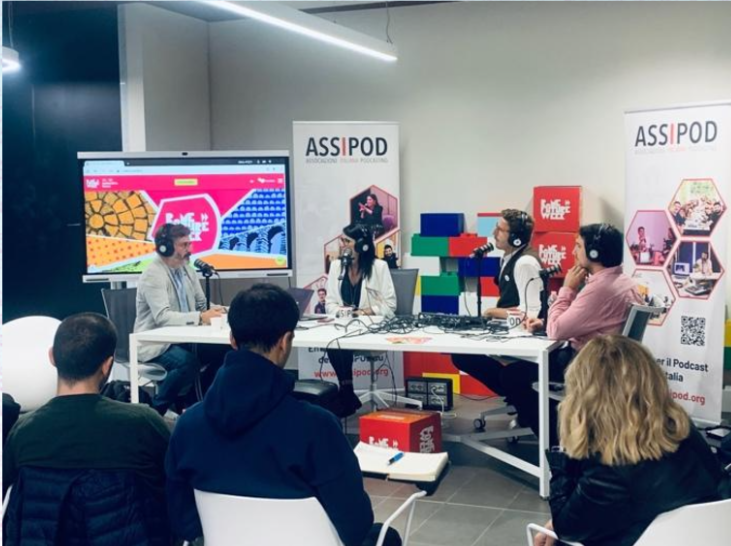

This project is funded by the European Union from call CNECT/2022/3482066 – Art and the digital: Unleashing creativity for European industry, regions, and society under grant agreement LC-01984767
